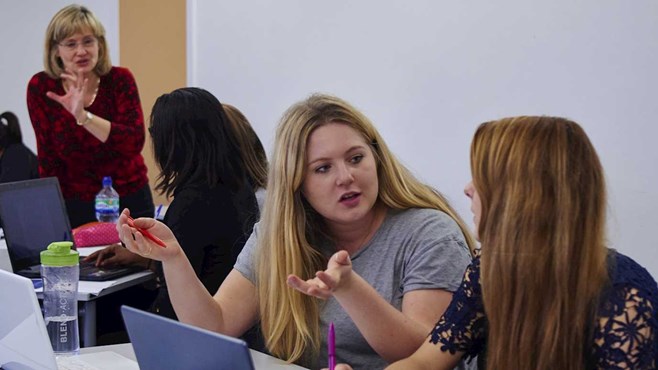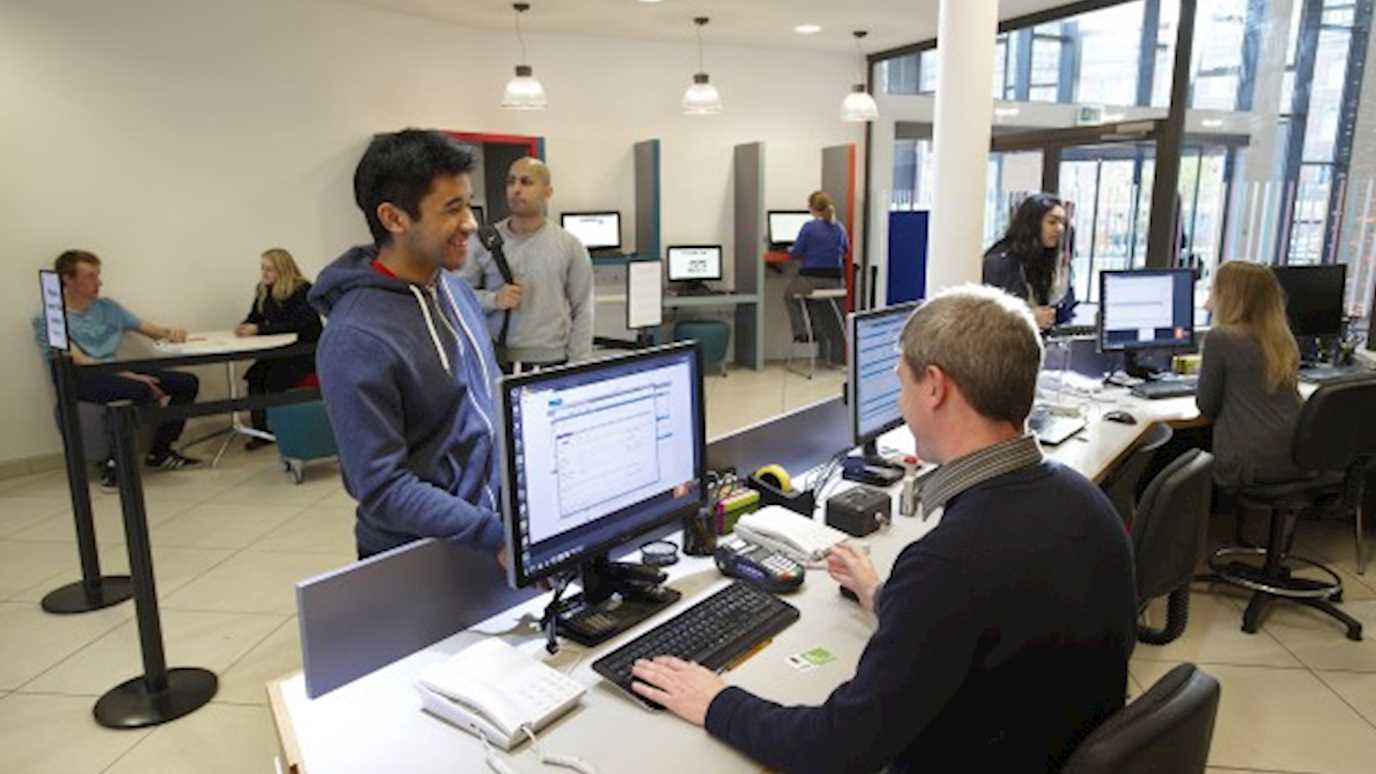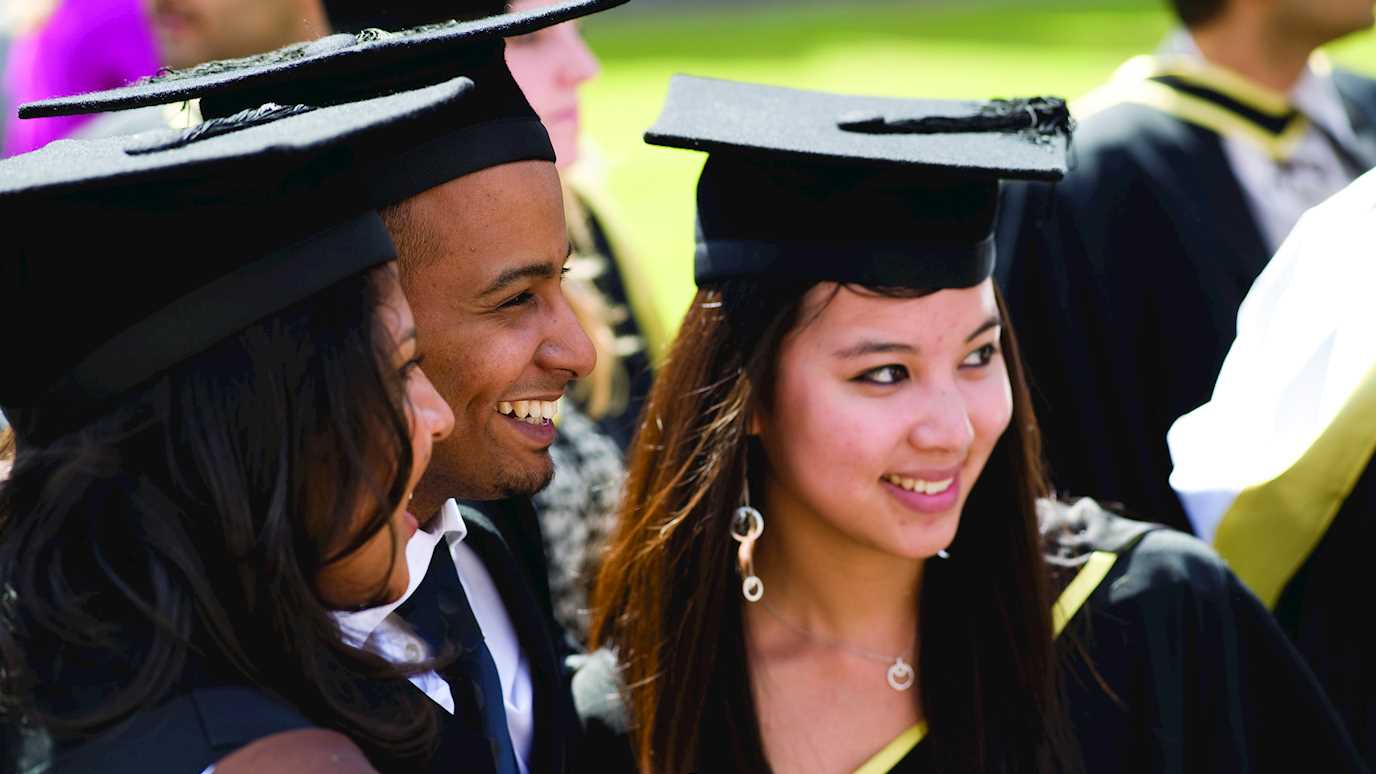Our world-class teaching is driven by our commitment to an inclusive approach, constant innovation, and sustained excellence.
Our teaching principles
- Inclusive approach to assessment
- Constant innovation of our teaching methods.
How you'll learn
All students at Royal Holloway can expect a blended learning approach with access to smart technology, a variety of learning and experiential activities outside of lectures, as well as timely and well considered assessment activities.
Our approach
Research informed curriculum
Our research excellence impacts our teaching
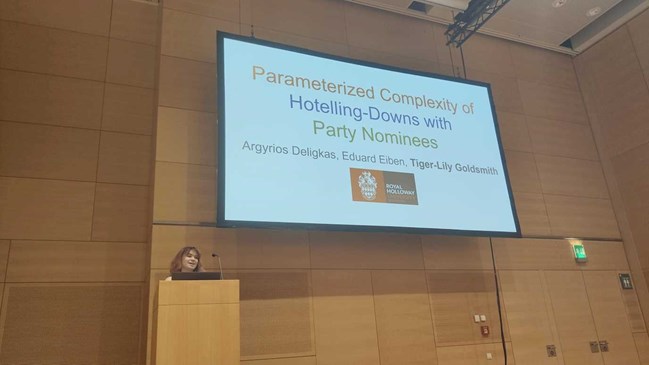
Third year student Tiger-Lily Goldsmith presenting at the 31st International Joint Conference on Artificial Intelligence and the 25th European Conference on Artificial Intelligence.
Our curriculum
Royal Holloway is a research intensive university highly ranked in the Research Excellence Framework, or REF. Research therefore forms a major part of our curriculum at all levels and students can expect to directly benefit from the latest developments in enquiry across all subject areas.
Developing research skills
Research developments not only inform the curriculum, but students are also exposed to research skills and methods of enquiry from early in their courses, with research design and organisation introduced in later years. In the final year of undergraduate study or Masters, students have the opportunity to do a dissertation or conduct a specific piece of long form research. This helps pave the way for further study at the graduate or postgraduate level with particular support for underrepresented groups.
Students in research
In recent years, student research projects have won prizes or contributed to published papers at international conferences such as the 2018 IEEE Conference on Blockchain, or the WISTP International Conference on Information Security Theory and Practice.
- Best Student Paper Award
2019 International Forensic Mental Health Services Conference, Montreal
Recipient: Silvia Fraga Dominguez (Law and Criminology) - Best Student Talk
2018 Ecoacoustics Congress, Brisbane
Recipient: Richard Beason (Biological Sciences) -
First Place Cyber 9/12 Strategy Challenge
2021 Atlantic Council Cyber Strategy Challenge, UK
Recipients: Emma Smith, Kyra Mozley, Sofia Liemann Escobar and Stephanie Itimi (Centre for Doctoral Training in Cyber Security
Industry aligned curriculum
A curriculum designed for the future
We are committed to preparing students for life beyond the classroom and, to that end, our curriculum is future focused with clear links to industry through not just subject matter but direct learning experiences on courses.

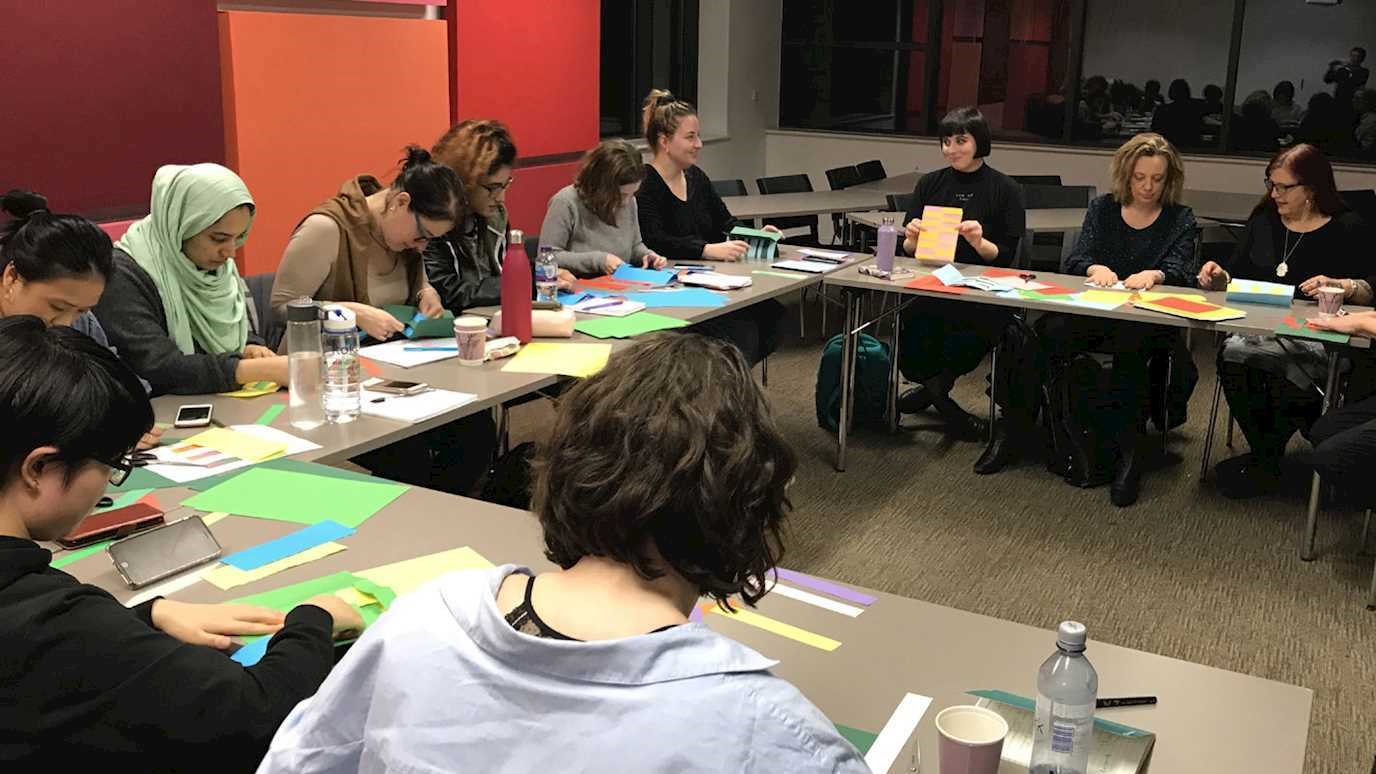 Students have access to guest lectures from leaders in the field, placements and work experience opportunities that count towards their degrees, study abroad experience and industry driven activities.
Students have access to guest lectures from leaders in the field, placements and work experience opportunities that count towards their degrees, study abroad experience and industry driven activities.
Our Schools also directly engage with employers, through Employer Advisory Groups, to ensure the curriculum is aligned with real world applications, and to connect students with opportunities before they graduate.
You can learn more on our Embedding Employability page.
Assessment and feedback
Our authentic approach to student evaluation
Good assessment and feedback allow our students to evaluate and validate the progress of their learning. We are committed to doing this in an authentic way so that students are assessed clearly against their learning outcomes, and in ways that provide useful feedback on their learning progress, whilst minimising stress.
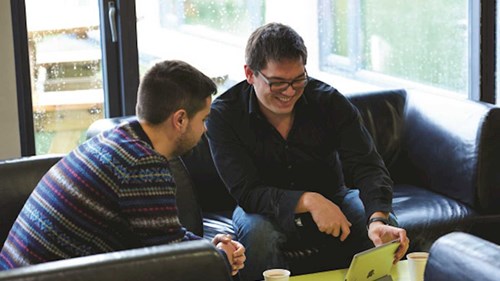
PhD candidate meets with supervisor
Assessment Futures
This project seeks to review and rethink the approach to assessment with the aim of:
- Reducing the number of separate assessments required of our students and implementing more joint assessments where possible
- Reflecting contemporary needs and alignment with the learning process
- Developing effective assessment approaches that measure students’ abilities regardless of background
- Reflecting academic integrity, security, privacy and fairness
Other resources
Annual academic reviews
Reflecting on and improving our pedagogy
Our annual academic reviews require all our teachers to reflect and report on their teaching delivery and student outcomes taking into account views from peers, students and external reviewers.
Our review cycle
Key elements of our review cycle:
- National Student Survey (NSS) data are analysed and action plan created to address student concerns
- Feedback on modules and other Student Voice reports are collected and analysed
- External Examiner and Student Voice reports are collated and analysed
- Data are collected on degree awards, continuation figures, awarding gaps, graduate jobs
Accreditation summary
Our professional, statutory and regulatory recognitions
The college and our Schools meet the accreditation requirements of various professional, statutory and regulatory bodies. All accreditations are listed here.
Professional accreditation
Because of our accreditation with various professional bodies, many of our students graduate with an accredited professional qualification. In 2022, 68% of our graduates attained a PRSB qualification.
School of Business and Management’s Association graduates receive Advance Collegiate Schools of Business (AACSB) accreditation, seen as the most stringent and globally recognised accreditation for business schools, while British Computing Society students gain degrees with National Cyber Security Centre/GCHQ certification, one of only 5 institutions with the award, and the only institution accreditation for both 3-year BSc and 4 year integrated MSc degrees.
Degree outcomes
See what degrees our students have earned in recent years
Learn how our students have performed in their degrees in recent years through our Degree Outcomes Statement.










